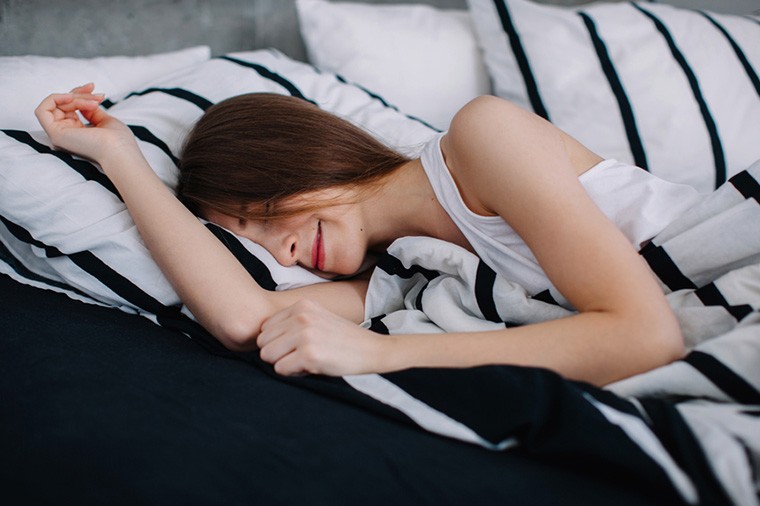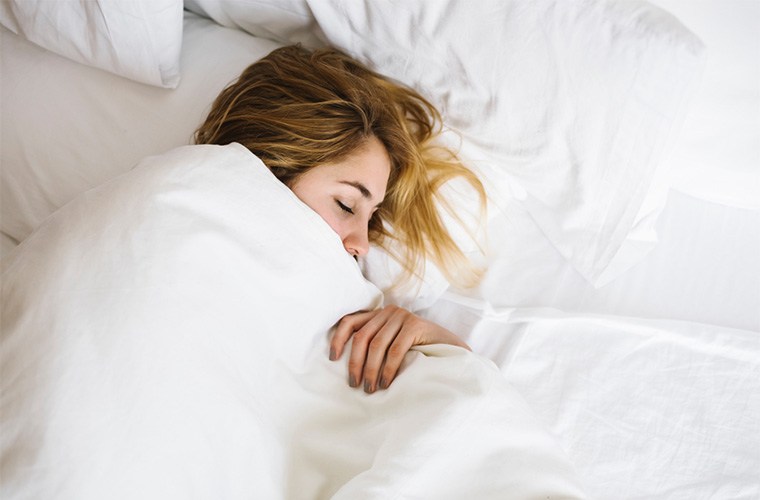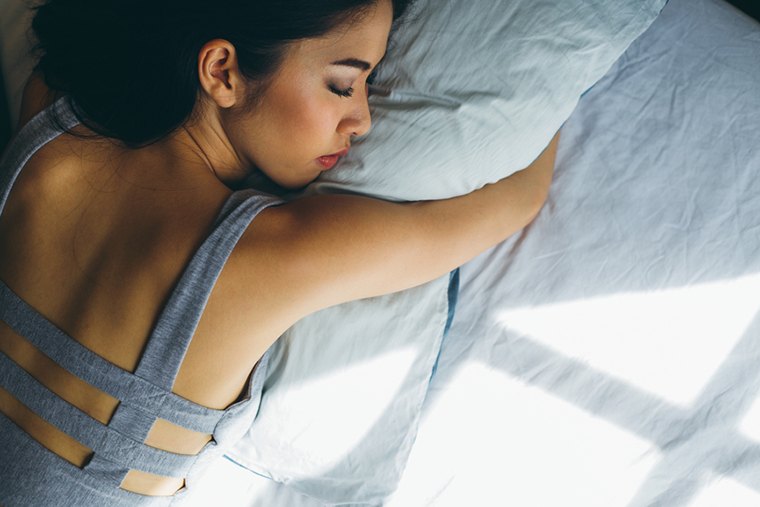What Your Go-to Sleeping Position Says About You, According to the Pros
You've probably heard the arguments for getting eight to 10 hours of shut-eye every night, and you've committed yourself to at least attempting to snooze more. But what you may not know is that different sleep positions can be just as important as how much you sleep, and it can tell you some pretty significant things about your health and habits.
Whether you snooze on your side or are a hard-core on-the-back relaxer, here's what different sleep positions are trying to tell you about your body.

If you sleep on your back
There's a reason why every yoga class ends with savasana. According to some experts, being on your back is one of the better sleep positions in which you can relax. "The reason it's an excellent position is that there's no compromise of any circulation," says sleep expert Nancy H. Rothstein. "Everything is free to flow."
But if sleeping on your back is has you feeling more "ouch!" than "om," your body could be trying to tell you something. Keelyn Nielsen, a sleep disorder coordinator in New York City, says an issue called "positional sleep apnea" can be triggered when you're on your back. "When someone is lying on her back, gravity alone is going to weigh her down," she explains. "So if they have, let's say, extra soft tissues in their throat due to fatty cellular buildup or a disproportionally large tongue, that can actually close up their airways and cause them to choke and/or snore." Gastrointestinal and back issues can also make this position uncomfortable, so listen to your body if it's begging you snooze on the flip side.

{{post.sponsorText}}
According to a dentist who specializes in sleep apnea, over 50 percent of the population suffers from these sleep-related issues and should thus be wary of spending an entire night on their backs. "I would never recommend the back," she says. If you've gotta do it, she suggests sleeping with a 30- or 45-degree wedge to prop yourself up.

If you sleep on your side
If you're an in-between-y sleeper, it may have more to do with what you're resting on than what you're body is trying to say. "In Ayurveda, the side that you lay on will activate a specific hemisphere of the brain," says Nielsen. There's some debate over which side is better (the right side can cause acid reflux, while the left has been linked to nightmares, says Martha Cortes, DDS, a dentist specializing in sleep apnea), but Rothstein notes that regardless of whether you're a left-y or a right-y sleeper, it's critical that you invest in the right pillow.
"Sleeping position is married to your mattress quality and pillow formation or size," she says. "Depending on how you sleep most of the time should impact your pillow, that it's not too thick or too thin." If you're a side sleeper who's waking up with a sore neck, it may be time to treat yourself to a new pillow or to consider a reposition.

If you sleep in the fetal position
If you're sleeping like a baby when you're... sleeping like a baby, you're in good company. More than 40 percent of the population favors the fetal position. If you're in that group, Dr. Cortes recommends a gentle, not-too-tight fetal position so your organs can function properly throughout the night.
However, not everyone agrees. "The problem with the fetal position is that so much circulation is compromised, and that's not great for your blood flow," says Rothstein. If you are planning to snuggle up on your side, make sure you're not crunching up your body, and be sure to protect your neck and back by keeping your head slightly propped up and bending your legs together.

If you sleep on your stomach
Tummy time may be an adorable activity for infants, but it can be a problem for adults. "Your stomach is probably the worst way to sleep because it's hard on your back," says Rothstein. Stomach sleeping can reduce snoring, but so can a humidifier without messing up your spine. If you're a stomach sleeper looking to change her ways, Dr. Cortes suggests strapping tennis balls under the front of your T-shirt (yes, really) to keep you from rolling into the position in the middle of the night.
Originally posted October 2, 2017; updated March 22, 2019.
Ready to hit "snooze" on your body and brain? Here are five essential oils to help you get some better zzz's, and a sneak peek at what the future of sleep really looks like. (Spoiler alert: It's dream-y).
Loading More Posts...